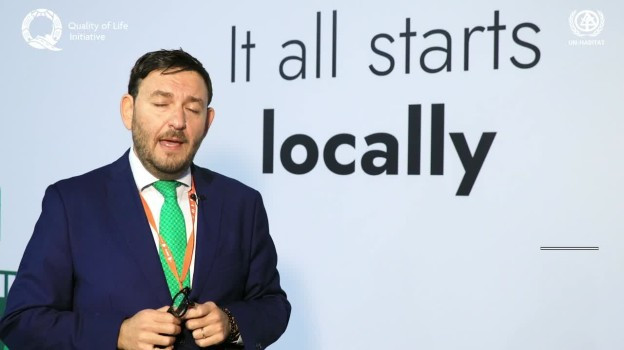
LOCAL authorities in Africa are financially hamstrung to improve the standards of living in urban areas on a continent witnessing rapid urbanisation, the Zimbabwe Independent can report.
According to the United Nations (UN) an estimated six out of ten (10) people in Africa will be living in urban areas by 2050.
However, urban dwellers will have to contend with a range of challenges including limited housing, water and rising levels of pollution.
This comes as Zimbabwe is among four African countries targeted by the UN Economic Commission for Africa (ECA) this year to embrace the UN Quality of Life Initiative.
The Quality-of-Life Initiative equips local authorities with the data and insights they need to ensure that urban expansion benefits every resident.
UN ECA focal point for the Quality of Life Initiative Giuseppe Tesoriere told the Independent that local authorities on the continent will require robust planning and funding strategies to address a myriad of challenges ushered in by urbanisation.
He said: “The urban growth will likely usher in deep changes to the economic, social and political landscape of the continent.6 out of 10 Africans will live in urban areas by 2050.Local authorities are at the forefront of managing this influx of urban dwellers.
“However local authorities lack the adequate resources…to effectively deliver the services people need including water and sanitation, social services, affordable housing and transport. Disaggregated data by location, gender, age and status are lacking. These are needed to better plan and allocate resources to everyone.”
- Councils defy govt fire tender directive
- Bulls to charge into Zimbabwe gold stocks
- Over 115 to exhibit at Mine Entra
- Bullets shoot down Chiefs
Keep Reading
In the absence of that disaggregated data framework, he added, urbanisation would be steep to manage.
“Without a regular data collection and analysis, urbanisation can generate more costs than benefits for the economy, society and environment,” Tesoriere further said.
Commenting on the rate of urbanisation in Africa, EÇA social affairs officer in the urbanisation and development section Lusungu Kayani noted that key stakeholders have been identified in Zimbabwe to spearhead the adoption of the Quality-of-Life Initiative.
She said: “In Zimbabwe localisation of Sustainable Development Goals (SDGs)has been a key priority of the national government and all local governments instructed to engage in conducting Voluntary Local Reviews, and mechanism for reviewing the implementation of SDGs at subnational level.
“Through these localisation efforts, key stakeholders and institutions have been identified to help in ushering the Quality-of-Life Initiative. In parallel, the Zimbabwe National Statistics Agency plays a crucial role for the Initiative in providing the necessary support to build the index.”
Victoria Falls City Council (VFCC) Town Clerk Ronnie Dube conceded that scarce resources and inadequate infrastructure were among challenges militating against the local authority.
“The city is growing but inadequate infrastructure remains one of the biggest setbacks. The city’s population has grown to over 35 000 according to the 2022 Zimstats census results but infrastructure has remained fairly limited,” he said.
“This is compounded by a huge transit population which relies on services from the city. This affects water supply, sanitation, and waste management whose infrastructure is overwhelmed thereby affecting service delivery.”
The local authority generates the bulk of its resources from the Victoria Falls which is Zimbabwe’s foremost tourism destination.
Dube added that the city’s reliance on tourism revenue, exposed it to global shock such as the Covid-19 pandemic.
He said: “The local economy heavily relies on tourism, making it vulnerable to economic shocks as was seen during Covid-19 when the city’s residents had no other source of income.
“The city has no land for expansion making it difficult to provide housing and social amenities such as recreational facilities.”
Countries in Africa targeted by ECA will have the opportunity to interact with “diverse stakeholders, including policymakers, urban planners, national statistical office representatives, and community leaders, in the coming months to discuss the core elements of a good quality of life and identify areas for improvement.”
A statement issued by ECA last week reads: “EÇA works in close collaboration with the Quality-of-Life Initiative to scale up the Index in cities across Africa.
“The Quality-of-Life Initiative actively engages with the UN Regional Economic Commissions to mobilize the participation of cities and local governments globally, providing technical support and capacity-building to help them adopt and implement the Quality of Life Index as a tool for urban development and policymaking.”
Some of the countries in Africa which will implement the initiative include Ethiopia, Ghana, and Kenya.
ECA was established in 1958.
Its mandate is to: “promote the economic and social development of its member States, foster intra-regional integration, and promote international cooperation for Africa's development.”










